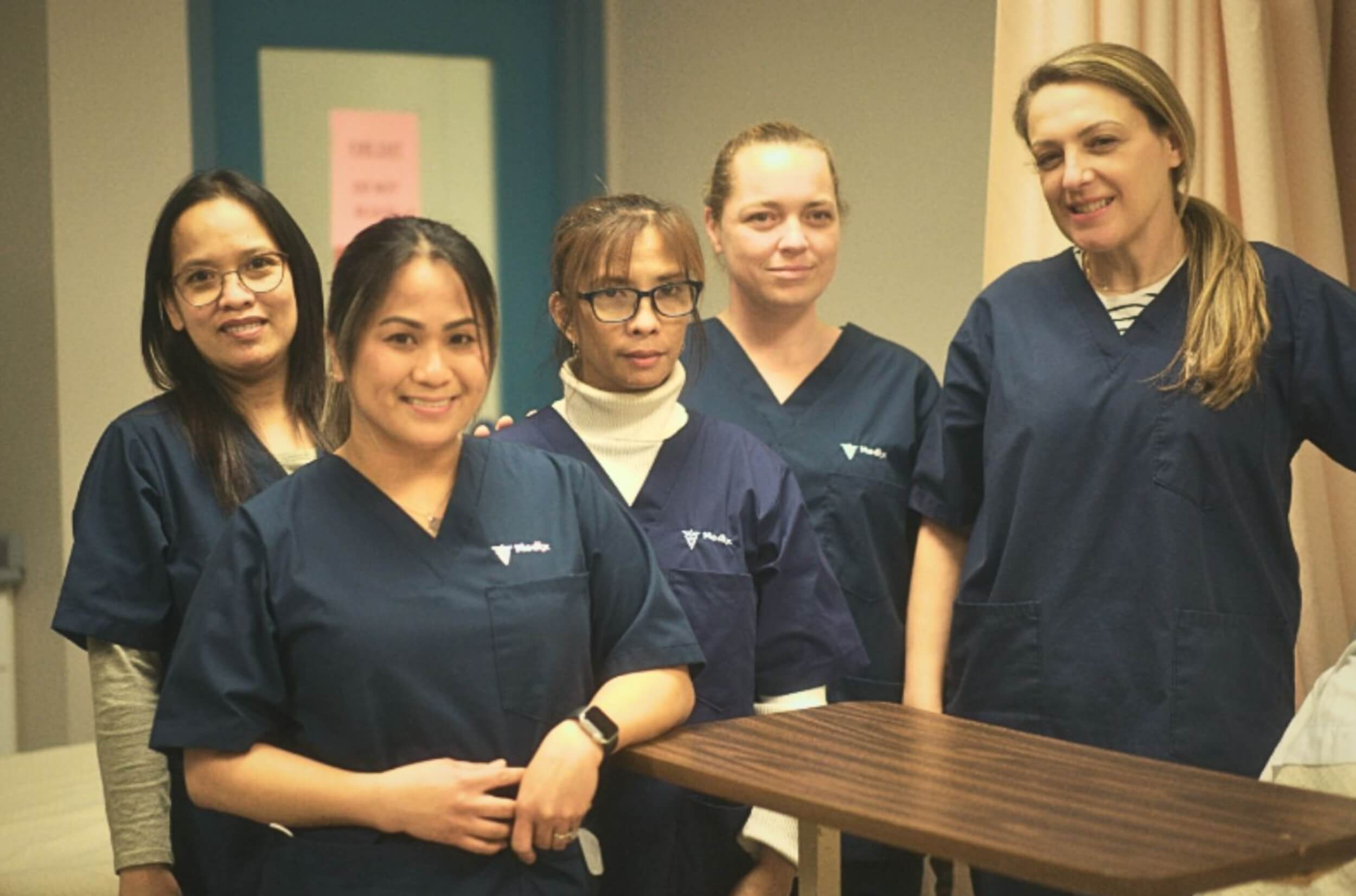Using the Gentle Persuasive Approach as a Personal Support Worker: Key Strategies and Benefits
February 23, 2024
Calling all future personal support workers! Today, we’re exploring a powerful technique for dealing with clients living with dementia. It’s known as the Gentle Persuasive Approach (GPA). This approach is a philosophy that transforms the way we care for others, ensuring compassionate, person-centered care for the individual.
The Gentle, Persuasive Approach effectively diffuses escalated scenarios in a care setting, improving safety, fostering good communication, and focusing on the person rather than the disease. Understanding the GPA technique as a personal support worker will make you a sought-after candidate when entering your first position. Let’s explore this valuable strategy!
Understanding the Gentle, Persuasive Approach
What is the gentle approach to dementia? The term “GPA” in dementia care refers to the Gentle Persuasive Approach. This specialized, evidence-based method is designed for healthcare providers working with older adults with dementia and other cognitive impairments. What is the GPA approach? It’s a thoughtful, person-centered care strategy that emphasizes understanding and empathy. The idea is to see things from the client’s perspective and respond with compassion and respect. It starkly contrasts with more traditional, directive methods and truly puts the person at the center of care. It involves:
- Understanding dementia, including its symptoms, progression, and challenges for individuals with it. This knowledge helps caregivers to be more empathetic and patient in their interactions.
- Person-Centered Care: GPA advocates for person-centered care, recognizing each individual as unique, with specific preferences and needs. This approach respects the person’s dignity and autonomy, even as cognitive abilities decline.
- Non-Violent Crisis Intervention: GPA teaches non-violent de-escalation techniques and how to respond to challenging behaviors often exhibited by individuals with dementia. This includes understanding the triggers for such behaviors and how to prevent or reduce them.
- Communication Strategies: Effective communication strategies are a core component of GPA. This involves learning to use verbal and non-verbal cues to communicate effectively with individuals who may have difficulty understanding or expressing themselves.
- Hands-On Techniques: GPA provides practical, hands-on techniques to guide and assist individuals with dementia in activities of daily living. These techniques are designed to be respectful and gentle and minimize the risk of harm to the caregiver and client.
- Teamwork and Collaboration: GPA encourages teamwork and collaboration among caregivers, recognizing that caring for individuals with dementia is a shared responsibility.
- Continuous Learning and Adaptation: The approach promotes constant learning and adaptation of care strategies as the needs of the individual with dementia change over time.

GPA Best Practices to Remember
Let’s talk about best practices. First and foremost, as part of a gentle, persuasive approach, building trust and rapport is crucial. It’s about creating a bond with clients, showing them they’re in safe, caring hands. Communication is key – and not just the words we use. Our tone, facial expressions, and body language all play a part in conveying respect and understanding.
Managing behaviors is another vital aspect. Sometimes, clients may feel anxious or confused, and it’s our job to recognize these signs and respond in a way that soothes and reassures them. This leads us to de-escalation techniques. It’s all about staying calm and composed, using gentle persuasion rather than force to defuse challenging situations.
Benefits of Using the Gentle Persuasive Approach
The benefits for practitioners and, especially, for clients are immense! With the use of GPA dementia care methods, we see more substantial positive relationships with clients. There’s a noticeable reduction in conflicts and injuries, making the environment safer for everyone.
Plus, mastering the GPA can improve your professional growth and job satisfaction. Of course, it can be challenging sailing. You might encounter resistance or need help to stay patient. The key is persistence and continuous learning. Don’t hesitate to seek support from colleagues or additional training.

The Gentle Persuasive Approach is a mindset shift that enriches the way we interact with our clients. The personal support worker diploma at Medix College prepares students to tailor support to each individual’s needs they work with, providing outstanding care and accessing opportunities to advance their careers. By embracing GPA, PSWs can foster more meaningful, respectful, and compelling care experiences.
Frequently Asked Questions
Q: What is the gentle approach to dementia?
A: The term “GPA” in dementia care refers to the Gentle Persuasive Approach. This specialized, evidence-based method is designed for healthcare providers working with older adults with dementia and other cognitive impairments.
Q: What is the GPA approach?
A: It’s a thoughtful, person-centered care strategy emphasizing understanding and empathy.
Are you ready to start our personal support worker course?
Contact Medix College for more information!



